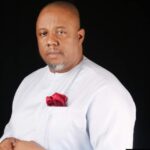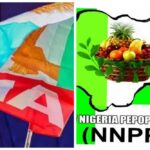By Prof. Ojo Emmanuel Ademola
In contemporary research methodologies, qualitative and quantitative (quali-quant) approaches to proffering solutions/answers to the statement of the problem are clearly acceptable standards in the academic world. The usage of the hybrid procedures offers the most potent, credible, reliable and valid position on any given subject, issue or discourse. This is essentially true because inferences drawn from both Statistical Data (SD) and Critical Analysis Discourse (CAD) are unambiguous, undisputable and verifiable. Essentially, the recently released forecasts on the projection of Asiwaju Bola Ahmed Tinubu (BAT) winning Saturday’s presidential election with a wide margin of over 3Million votes derive its basis from the scientific point of facts and figures on the ground, particularly against elections’ antecedents in the Country since the stable democratic experimentation in 1999.
The release forecasts have projected that bearing any unforeseen challenges to the Presidential Election slated for this Saturday, 25th February 2023, Asiwaju Bola Ahmed Tinubu (BAT) of the All Progressives Congress (APC) will emerge as the overall presidential winner of the Nigerian general election without any ambiguity. This projection was based on the usage of the widely acknowledged parametric statistical data which indicated that a superior revolution is in the offering via the use of Permanent Voters Card (PVC) come Saturday in favour of Tinubu/Shettima candidacy primarily because of the landslides votes that will be recorded in at least 17 States, and outright wins in at least 20 states with between 15 and 20 per cent winning margin over a distant second candidate.
In the forecast report released about three days ago, the leading APC presidential candidate (BAT) will score the highest winning votes clearly in 20 States of the Federation including Lagos, Ogun, Osun, Ondo, Ekiti, Oyo, Kwara, Kogi, Niger, Kaduna, as well as Nasarawa, Kebbi, Katsina, Jigawa, Zamfara, Kano, Yobe, Gombe, Borno and Rivers (see the statistical graph). The Statistical data which highlights incremental percentage voters’ turnout over the 2019 presidential election as given by Independent National Electoral Commission (INEC) in its published 2023 Voters Register, projected that APC and its candidate will poll total votes of about a 15.7Million as against its closest rival in Peoples Democratic Party (PDP), Alhaji Atiku Abubakar who is expected to poll about 11.9Million votes nationwide. From the Data, there will be a clear difference of about a 3.8Million-votes between the two highly rated candidates.
The reliable Statistical Data (SD) indicated that PDP and its candidate will win outrightly in Adamawa, Taraba, Bayelsa, Delta and Akwa Ibom States along the fringe States with the required 25 per cent votes.
On the other hand, the Labour Party (LP) and its candidate, Mr Peter Obi was projected for an outrightly win in the Southeastern States of Abia, Ebonyi, Anambra and Enugu, also polling a minimal 25% votes in some States of the Federation.
Through the use of the SD, the Author said in his introductory remarks that: “We foresee a superior revolution via PVC on the 25th of February 2023, in favour of Tinubu/Shettima of APC having landslides in at least 17 States and outright wins in at least 20 states, with at least 15-20% winning margin over a distant second candidate. BAT will win the first ballot convincingly with a lot of support; Waziri Atiku Abubakar might be able to win enough votes in four of the country’s six regions to meet the constitutional requirement that he must win at least 24 states with 25 per cent of the vote. It is guessed that BAT will perform well in the two most significant democratic states in the country, Kano and Lagos States, as well as the thickly populated conditions of the South-West and North-West, which will give him the most famous vote.
Despite the widespread belief that there will be no ethnic or religious bias in the choice process, many respondents have chosen to run for president despite the political landscape. It is anticipated that this decision will be made without regard to ethnicity or religion. Notably, given the centre’s power under the 1999 Constitution, Nigeria’s eligible voters are less interested in down-ballot contests and prefer the presidential race over all other positions up for grabs in the 2023 general elections.
However, Nigerians are savvier and rely on INEC to conduct free, impartial and transparent elections. The potential impact of election-day security concerns, the general public’s comprehension of new electoral legislation, and the biometric voter accreditation procedure have an impact on the relationship between the electorate and the electoral authority. Younger respondents have a slightly lower level of trust in the umpire than other demographics, as at least 60% believe INEC would conduct a reliable test.
Not only will the Nigerian presidential election in 2023 have a significant impact on the rest of Africa, but it will also have an impact on the rest of the world. In light of recent results of elections in Osun and Ekiti States, awareness of the Electoral Act of 2022 is growing.
Strangely, younger voters and students, who make up the majority of voters, consistently indicated lower levels of awareness of election law than older and wealthier respondents. As a consequence of this, it is anticipated that individuals, businesses, and the media will gain from the decisions made based on this data.
With that background, a zone-by-zone analysis suffices to buttress the underlying proposition that the coast is cleared for BAT to emerge as the President-In-Waiting of the Federal Republic of Nigeria from February 25th, 2023. Beginning from the most difficult zone of South East which has been predominantly the PDP territory in the past elections, the prognosis indicates that the winning trend in the five (5) States will change, granting the new Third Force Party, LP a hold with outright winning of four (4) States Abia, Ebonyi, Anambra, Enugu, and the last one (1) of Imo remaining too-closed to call or decide. This is definitely a clear departure from the 2019 general elections where PDP and APGA had a good showing. The inference is that the winning numbers of the PDP will be greatly impaired in the zone, fretting away its chances of winning the presidential election. The zone is recorded by INEC to have about an 11.5Million voters for the coming election, showing a slight increase of about 20% over 2019.
For the six (6) States (Edo, Delta, Bayelsa, Akwa Ibom, Cross Rivers and Rivers) of the South-South zone, the forecasts indicated that 3 of them will go to PDP; one (1) to APC and the outstanding two (2) will remain ‘battlegrounds’ for the major 3 leading parties to pick. The clear explanation is that the fortune of APC Tinubu/Shettima in the zone has greatly improved, and this will reflect in its overall winning votes compared to the past performances of the party in the zone. The backbone of PDP on the zone has been broken, and this remains a minus for its overall showing. The zone has about a 15.3Millions registered voters for the election, indicating about a 30% increase above 2019 figures.
For the six (6) States of the South-West zone – Lagos, Ogun, Oyo, Osun, Ondo and Ekiti, BAT/APC will definitely emerge the outright winner, polling over 70% of the total votes cast in the zone. It is the only zones in the Country that will be solely and wholly delivered to a single candidate in the Country. And to INEC’s Voters Register, the zone has about an 18.3Million voters registered for 2023, showing about a 40% increase on the 2019 figures. This clearly shows that a block vote is expected to be delivered to BAT, and this remains a feat to be outmatched by any of the candidates.
For the North-West zone of Sokoto, Kebbi, Zamfara, Kano, Katsina, Jigawa and Kaduna States, the forecasts remain favourable to BAT/APC, clinching outrightly six (6) of the States except Sokoto, which remains in contention as ‘battle ground’ State between APC and PDP. Like the South West zone, the zone (NW) remains the leading region with the highest number of registered voters of about a 22.7Million in the Country and has largely remained the ruling party’s (APC) stronghold in the 2015 and 2019 general elections. The clear inference is that all things being equal, APC Tinubu/Shettima will carry the day in the zone, and the forecasts will have been partially fulfilled.
The North East (NE) zone, consisting of Borno, Adamawa, Bauchi, Yobe, Gombe and Taraba States was hitherto majorly a PDP region before the 2015 election but has since remained mostly APC base aside from Adamawa and Taraba States. For Saturday’s presidential election, the zone with about a 12.8Million voters is expected to be shared predominantly by APC with four (4) States; one (1) State for PDP while Bauchi remains a ‘battleground’. Again, the projections favour Asiwaju as most of the Governors in the zone have a firm grip on the party structures to deliver the mandates of the Presidency. Instructively, it is the zone of BAT’s Vice-Presidential Candidate who enjoys the tremendous support of his people. Though some analysts have indicated that the zone also belongs to Alhaji Atiku Abubakar, the PDP Presidential hopeful, he, however, has a firm grip of only his State, Adamawa with most players routing for Asiwaju’s Presidency.
Lastly, the forecasts projected the North Central (NC) as the “battleground” for its admixture of religious and ethnic sophistry. The zone consists of Plateau, Benue, Niger, Nassarawa, Kogi and Kwara States with a total of about a 15.7Million voters. Currently an APC zone apart from Plateau and Benue States, the zone is expected to deliver its block votes to BAT.
In all, the forecasts lend credence to the series of pre-campaign projections which have favoured Tinubu/Shettima’s presidential ticket far over their co-contestants. It backs the series of the stakeholders’ engagements over the last four years, and most importantly, it voices in unmistakable terms the clear desire of the electorate for a Renewed Hope which APC Tinubu/Shettima anchors their campaign promises. It’s based on the foregoing and God’s assurances that Asiwaju Bola Ahmed Tinubu’s Presidency is done deal come Saturday, February 25th, 2023.
Prof Ojo Emmanuel Ademola is a globally renowned Cyber Security expert with an abundance flare for accurate forecasts of political developments


